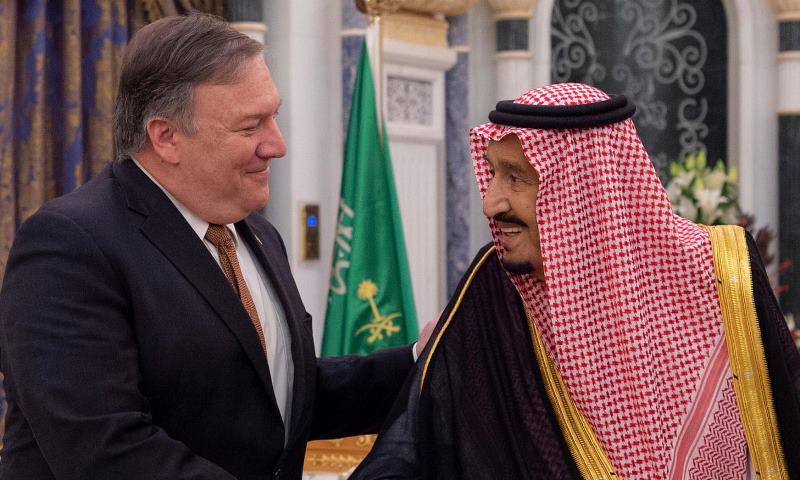Trump told CBS on the 13th of October that “We’re going to get to the bottom of it and there will be severe punishment,” after the US Senate foreign relations committee was briefed about the mysterious disappearance of the dissident Saudi journalist, Jamal Khashoggi, who appears to have been assassinated inside the Saudi Arabian consulate in Turkey. Bob Corker, Republican chair of the committee, told CNN that he blamed the Saudis: “I think they did it and unfortunately I think he is deceased. But they certainly could produce him and change the narrative”. Bob Corker was one of 22 senators who wrote to Trump forcing an investigation into the missing journalist’s fate, which has placed a spotlight on Trump and his relationship with Saudi Arabia.
Comment:
While many in the US Senate are pushing for a tough response, Trump has been uncharacteristically cautious by making the point that Jamal Khashoggi disappeared in Turkey and that Khashoggi was not a US citizen. However, he did say: “We don’t like it even a little bit. But whether or not we should stop $110bn from being spent in this country – knowing they have … two very good alternatives. That would not be acceptable to me.” He continued: “I don’t like stopping massive amounts of money that’s being poured into our country – they are spending $110bn on military equipment and on things that create jobs for this country.” So Trump doesn’t ‘like’ the idea of murdering journalists in the Saudi embassy, but he also doesn’t like the US to lose money on account of human rights.
Trump is pragmatic about dealing with Saudi Arabia: “I don’t like the concept of stopping an investment of $110 billion into the United States because you know what they’re going to do, they’re going to take that money and spend it in Russia or China … If it turns out to be as bad as it might be, there are certainly other ways of handling the situation.” Trump’s logic is clear. If it is proven that a crime was committed by Saudi Arabia, it was not committed in the US and the victim was not a US citizen, so why should the US have to lose valuable arms contracts to show its moral outrage?
The logic of those who are criticizing Trump’s soft response to the issue is that the US built a leadership in the post second world war era upon international law and human rights standards along with international institutions to back up the ideals that the US promoted, so by turning his back upon violations of rights and international standards, Trump is negating US leadership in the world. Furthermore, by using business and jobs as the reason for this, the US is appearing selfish and greedy. Many have gone further than this. They question whether Trump has personal business motives and they are exposing Trump’s long history of business dealings with Saudi Arabian businessmen and politicians.
Why, however, should Trump be criticized for all this? Personalizing the issue is actually making light of the fact that the US has for decades been bleeding the resources of Saudi Arabia away from their rightful owners and supporting them regardless of the many contradictions with US norms, so long as the oil kept flowing and subservience to US interests continued. Nothing has changed with this president. Previous US presidents used human rights as a pressure point to apply on those who stood up to their bullying, and they ignored human rights violations when committed by leaders loyal to them. The only thing different about Trump is that he doesn’t have the patience to tell such elaborate lies as his predecessors.
Dr. Abdullah Robin

